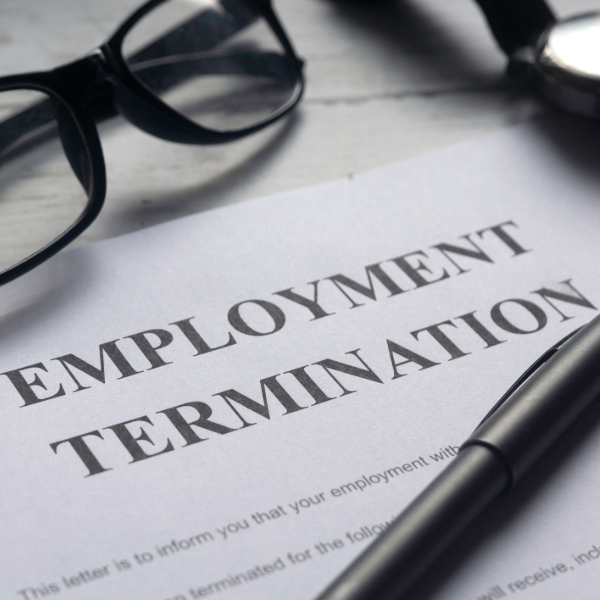
Zara had no idea a 15-second video would cost her a career.
The San Jose-based flight attendant had wrapped up a grueling three-day trip, ending with a delayed red-eye and a crying baby in seat 11C. She recorded a lighthearted TikTok from her hotel room, venting about passenger rudeness and the chaos of flying in 2024. She never mentioned her airline by name. She never wore a uniform. Her followers, mostly other crew members and travel bloggers, flooded the post with laughing emojis and shared stories of their own.
But the video blew up. Within 24 hours, it hit 800,000 views. Three days later, her manager called her into a disciplinary meeting.
The airline’s social media policy stated that employees must refrain from public complaints about the company or its passengers, even when off-duty. Zara was placed on unpaid leave pending investigation. A week later, she was out of a job.
This might sound unfair. But legally, her employer had the upper hand. Not every firing qualifies as wrongful termination under California law, even when it feels unjust.
When Free Speech Meets At-Will Employment
Many workers assume the First Amendment protects their right to say whatever they want online. It does not. At least not when it comes to private employment. The First Amendment limits government interference with speech, but private employers are generally allowed to set their own rules about how employees represent themselves and the company.
In California, most employees work “at-will,” meaning they can be terminated for any reason or no reason at all, so long as that reason is not illegal, such as discrimination or retaliation for protected activity.
But what about when your off-duty social media life goes viral?
The National Labor Relations Act (NLRA) does provide some protection. Section 7 protects employees who engage in “concerted activity” to improve working conditions or address grievances. So if Zara’s post had focused on pay, schedules, or safety, she might have had a case. But venting about rude passengers and personal burnout? Not protected. Her employer had every right to act on it.
Real Headlines, Real Consequences
Zara’s story may be fictional, but the headlines are not.
Just this year, veteran ABC News correspondent Terry Moran was dismissed after posting a sharply worded critique of Trump adviser Stephen Miller on X (formerly Twitter). Moran called Miller a “world-class hater.” The post was widely viewed, and within days, ABC chose not to renew Moran’s contract. Though he later launched a Substack and landed on his feet, the incident raised tough questions about journalistic neutrality and whether political commentary crosses the line for public figures tied to major media brands.
In another case, a flight attendant for Alaska Airlines was fired after her personal TikTok, completely unrelated to her employer, violated the airline’s code of conduct. She had not identified the company by name, but her follower count and content style made it easy for viewers to connect the dots.
A 2022 roundup by Fama, a social media screening company, documented at least eight recent firings due to employees’ online content. The posts ranged from jokes about COVID-19 to political rants and personal rants about customers. In each case, the employers cited policy violations, reputational harm, or a failure to uphold company values.
The Legal Fine Print
Employment law has not kept pace with the speed of social media virality. Most companies now include a social media clause in their handbooks or contracts, warning employees not to post anything that could damage the company’s brand, disclose confidential information, or cause workplace disruption.
These policies are often broad and subjective, leaving room for selective enforcement or inconsistent consequences. Legally, that is risky only if it results in discrimination, retaliation, or a violation of public policy. Otherwise, courts have generally upheld the employer’s right to discipline workers for online conduct, even when it occurs off-duty.
In California, Labor Code § 96(k) offers some protection for lawful conduct outside of work, but courts have limited its application. For example, if an employee is fired solely for posting political views or attending a protest, they may have a narrow claim. But if the employer ties the post to company image, workplace conflict, or code violations, the firing may still stand.
The NLRA’s Section 7 does not apply to individual griping. It only protects “concerted” activity, meaning two or more employees discussing workplace issues. A solo venting session on TikTok usually does not meet that bar.
Ethics vs. Legality
Even when legal, firing someone over a TikTok video can create backlash. The public may side with the employee, especially if the content seems innocuous or authentic. Social media platforms amplify reputational fallout for companies that appear overly punitive. In some cases, the firing goes viral, ironically giving the employee even more visibility.
There is also the question of fairness. Should employees be held accountable for every off-the-cuff comment or joke online? Should their private identity be inseparable from their professional role?
Employers face a balancing act. They have a right to protect their brand, but they must also recognize that their employees are human beings with personal lives, opinions, and identities. Creating clear, fair, and transparent social media policies is more important than ever. So is training managers to enforce those policies consistently and with nuance.
Final Thoughts
Zara’s story is a cautionary tale but not a unique one. As social media continues to blur the line between personal and professional life, employees need to understand that what they post, share, or say online can have very real consequences at work.
At the same time, employers must tread carefully. A heavy-handed approach can damage morale, attract negative press, or run afoul of labor laws if not handled correctly. We are living in the era of the TikTok termination. Whether you are an HR director or a content creator moonlighting as a barista, the message is the same: know your rights, know your risks, and read your policy manual before you hit “post.”




